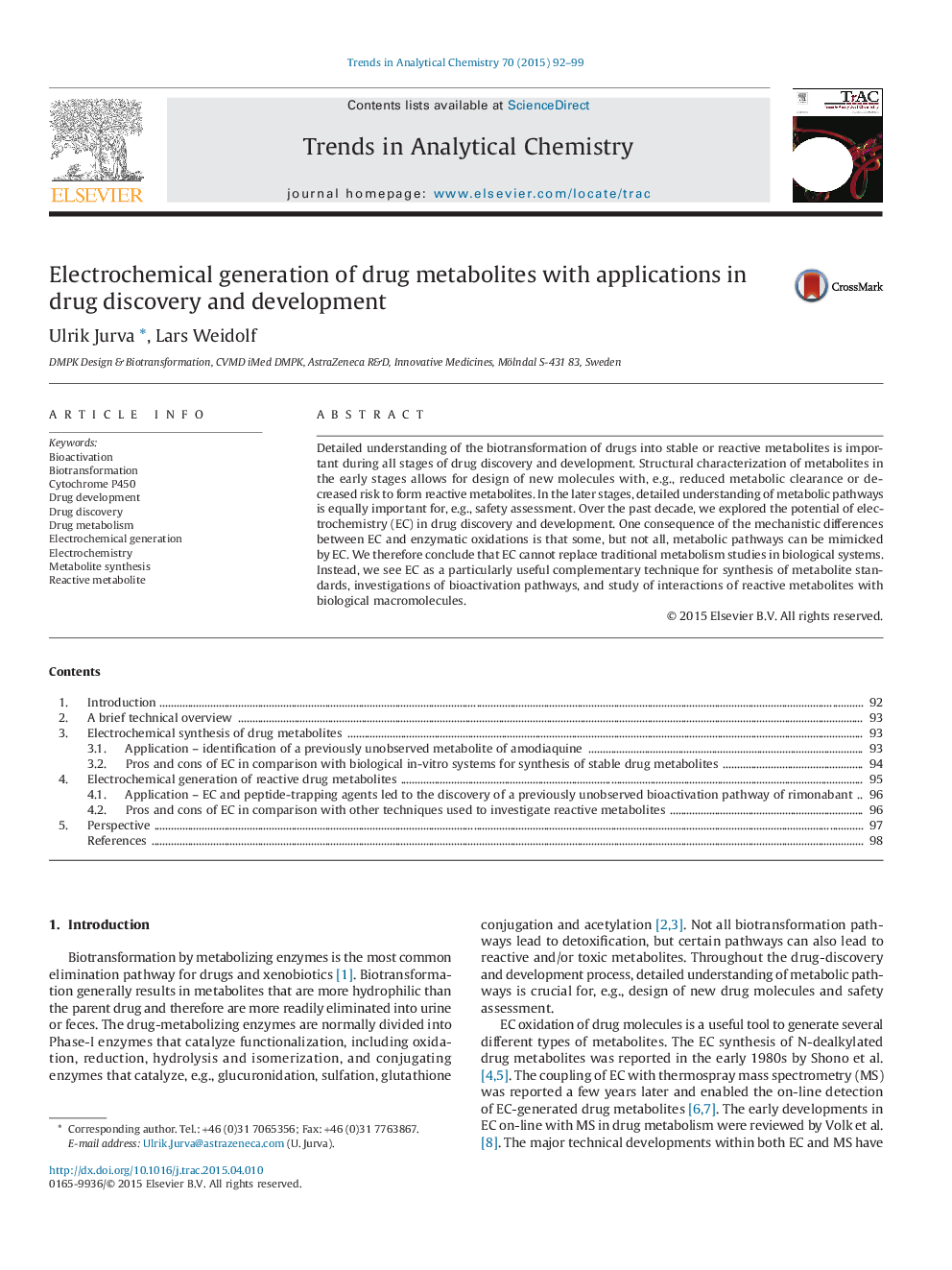| Article ID | Journal | Published Year | Pages | File Type |
|---|---|---|---|---|
| 1249067 | TrAC Trends in Analytical Chemistry | 2015 | 8 Pages |
•Why is electrochemistry (EC) interesting to the pharmaceutical industry?•When and how to apply EC during the drug-discovery and development process.•Applications of EC to metabolite synthesis and reactive metabolite studies.•Pros and cons of EC compared with other techniques used to study drug metabolism.
Detailed understanding of the biotransformation of drugs into stable or reactive metabolites is important during all stages of drug discovery and development. Structural characterization of metabolites in the early stages allows for design of new molecules with, e.g., reduced metabolic clearance or decreased risk to form reactive metabolites. In the later stages, detailed understanding of metabolic pathways is equally important for, e.g., safety assessment. Over the past decade, we explored the potential of electrochemistry (EC) in drug discovery and development. One consequence of the mechanistic differences between EC and enzymatic oxidations is that some, but not all, metabolic pathways can be mimicked by EC. We therefore conclude that EC cannot replace traditional metabolism studies in biological systems. Instead, we see EC as a particularly useful complementary technique for synthesis of metabolite standards, investigations of bioactivation pathways, and study of interactions of reactive metabolites with biological macromolecules.
